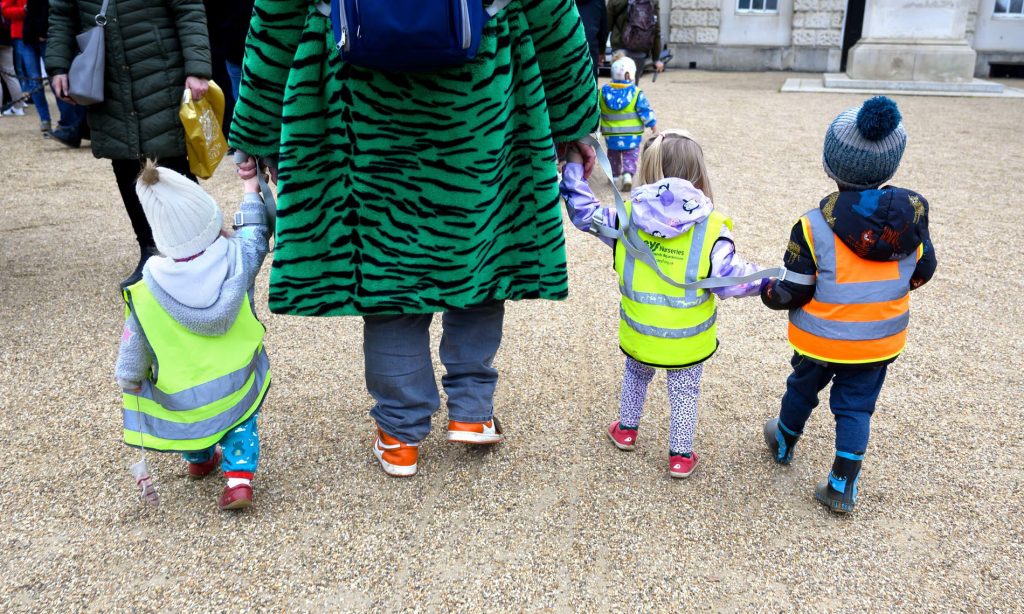Thousands of children from migrant and refugee families in the UK are being denied access to government-funded childcare due to restrictions tied to their parents’ immigration status, according to a new report. The policy, which limits benefits for those with “no recourse to public funds” (NRPF), prevents many parents from accessing the full 30 hours of free childcare, forcing them to stay home and making it harder to work.
A study by the Institute for Public Policy Research (IPPR) and the human rights organization Praxis reveals that about 71,000 families who would otherwise qualify for free childcare are excluded due to NRPF restrictions. As a result, families already facing financial hardship are pushed deeper into poverty while their children miss out on the educational and social benefits of early years education.
Currently, families affected by NRPF can access only 15 hours of free childcare for their three- and four-year-olds, with some low-income families eligible for childcare support for two-year-olds. However, they remain ineligible for extended support available to working parents, such as tax-free childcare and universal credit assistance.
Shams Sarker, a skilled migrant from Bangladesh, has been in London for three years, but his UK-born two-year-old daughter does not qualify for the same childcare support as other children. He and his wife have had to adjust their work schedules to care for her, reducing their income. “I expected the rules to be the same for all children,” he said. “My baby is growing up without the same opportunities as others.”
The IPPR and Praxis surveyed 159 parents affected by NRPF and found that only 55% used childcare services, compared to 72% of the general population. Many relied on informal childcare from family and friends, while 41% said the lack of free childcare prevented them or their partner from working.
Experts warn that these restrictions hurt both families and the economy. Dr. Lucy Mort of IPPR emphasized that “lifting these unfair barriers would not only support working parents but also give every child the best start in life.” Josephine Whitaker-Yilmaz of Praxis called on the government to ensure all children have equal opportunities, especially as new policies aim to improve school readiness.
A separate IPPR report found that nearly half of children in families with non-UK-born parents live in poverty, compared to 25% of other children. Without urgent action, experts warn that the upcoming child poverty strategy will fail to address the growing crisis among migrant families.
A spokesperson for the Department for Education defended the government’s approach, highlighting a £15 million investment in school-based nurseries and maintaining that families with NRPF can access 15 free childcare hours from age two, subject to eligibility. However, campaigners argue this is not enough to bridge the gap for the most vulnerable children.

